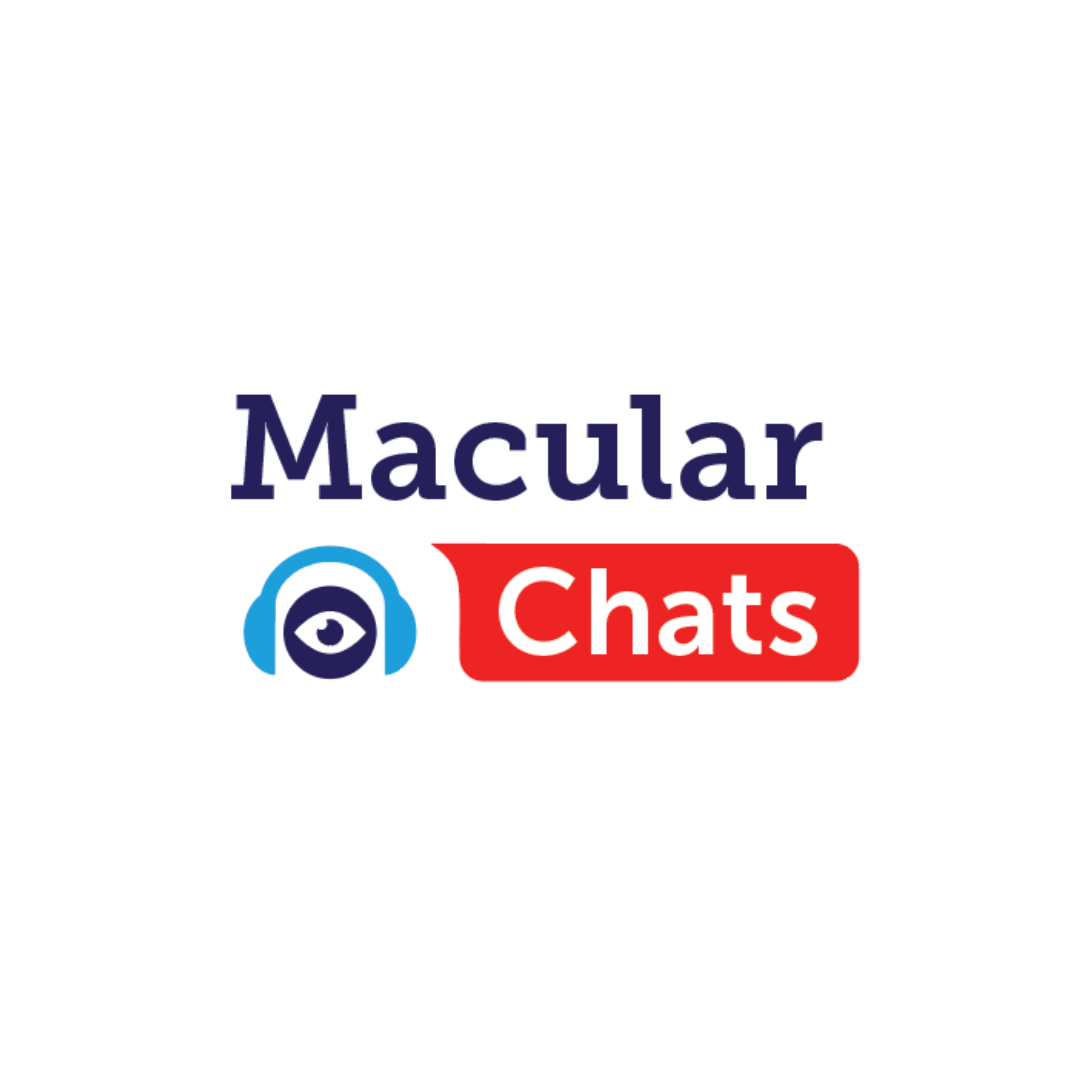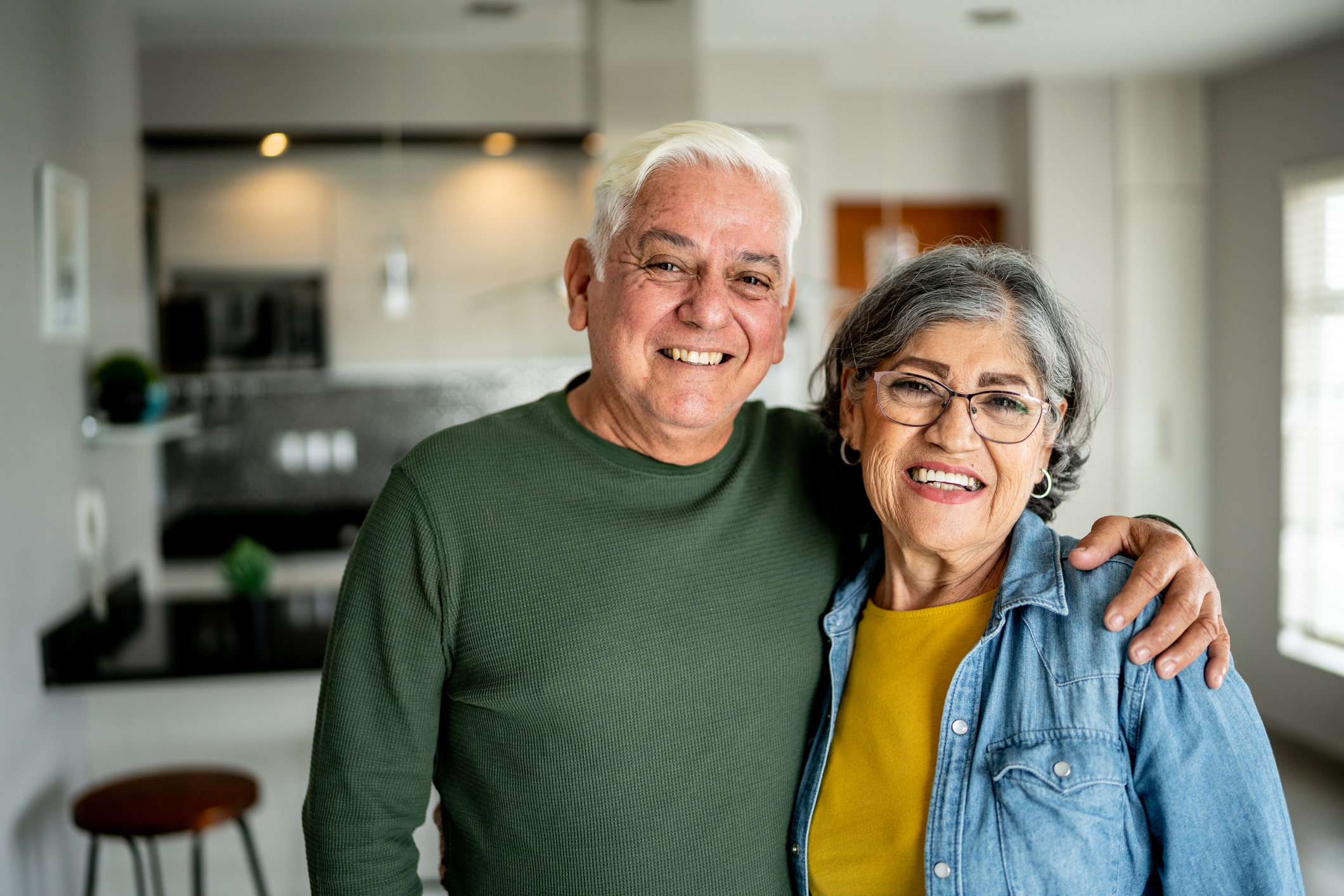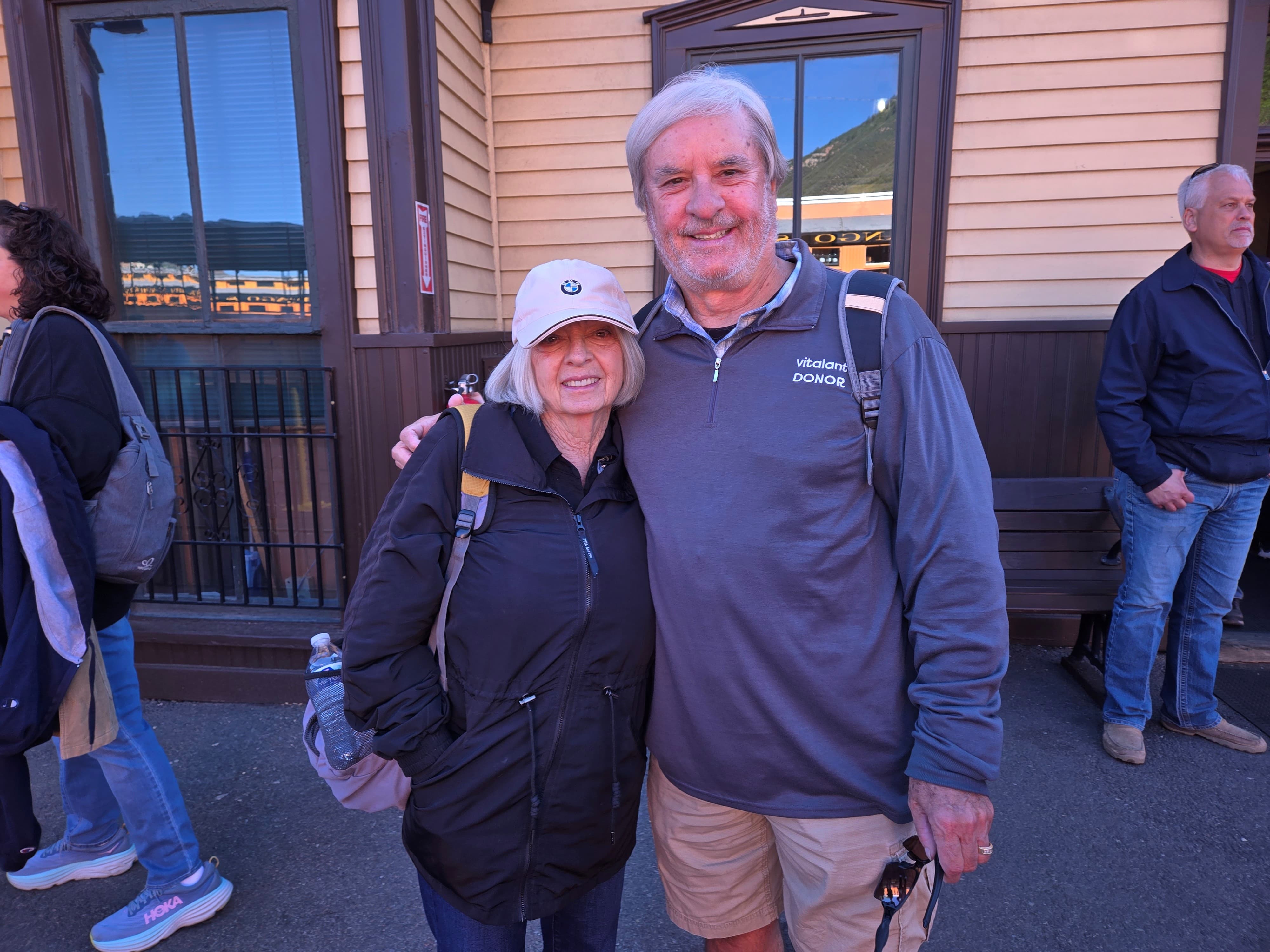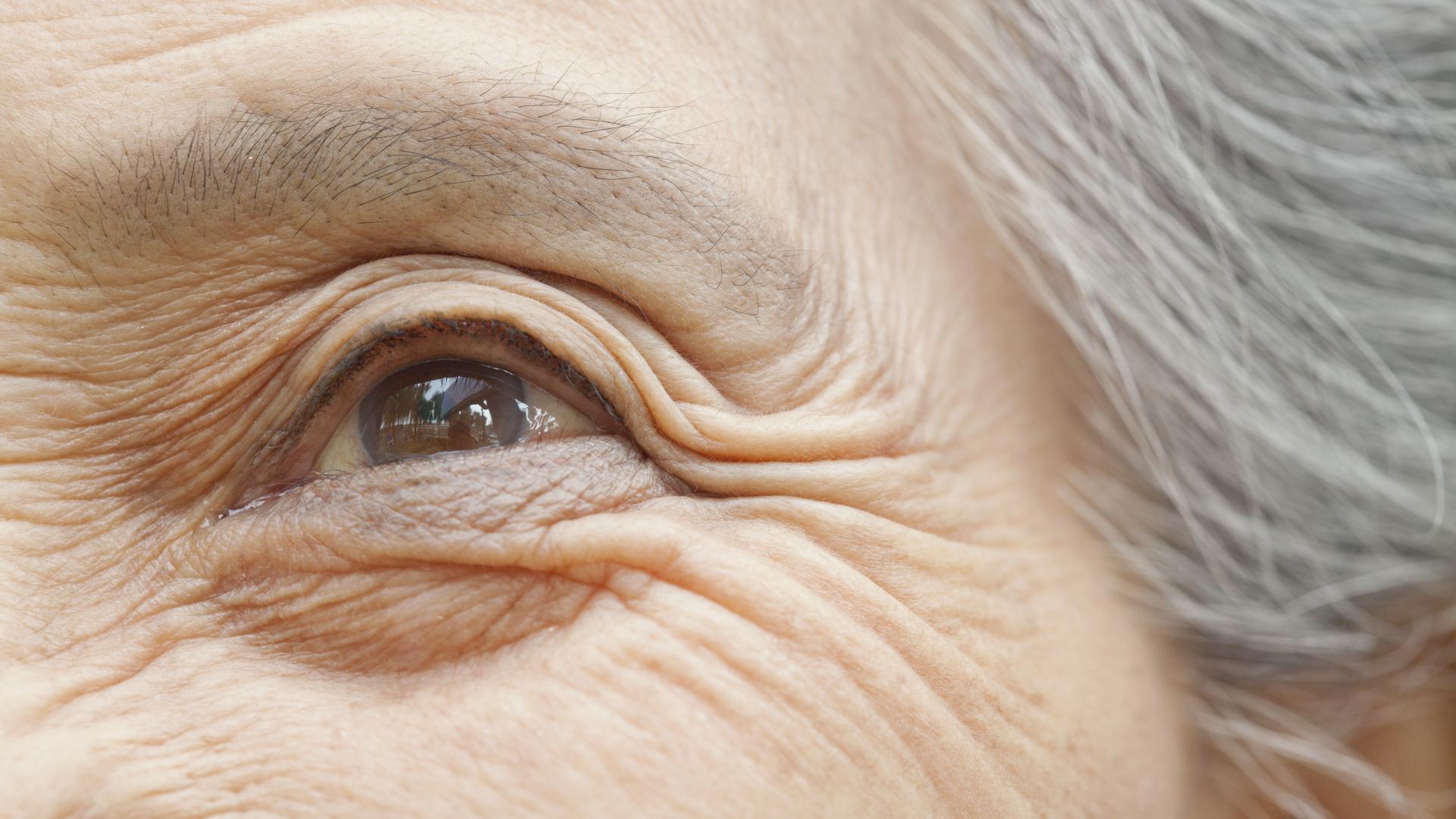AMD in the Winter: Helpful Tips to Stay Safe and Healthy
Featuring
Deirdre Johnston, MD
Geriatric Psychiatrist at Johns Hopkins University


Deirdre Johnston, MD
Geriatric Psychiatrist at Johns Hopkins University

The telephone discussion features Deirdre Johnston, MD, a geriatric psychiatrist at Johns Hopkins University.
Please note: This Chat has been edited for clarity and brevity. AMD refers to age-related macular degeneration.
MICHAEL BUCKLEY: Hello, I’m Michael Buckley with the BrightFocus Foundation. Welcome to today’s BrightFocus Chat, “AMD in the Winter: Tips to Stay Safe and Healthy.” If this is your first time at a BrightFocus Chat, welcome, and thanks for joining us.
Just for background, BrightFocus funds some of the top researchers in the world. These are scientists who are trying to find better treatments and ultimately cures for macular degeneration, glaucoma, and Alzheimer’s disease. We try to take the latest news from the fields of health and science and share them with families that are impacted by these diseases. This is why we do the BrightFocus Chats.
Today, we’ll have the opportunity to hear from a geriatric psychiatrist at Johns Hopkins University, Dr. Dierdre Johnston.
She’ll be talking about some tips to help people with low vision stay safe and healthy throughout the winter months.
Dr. Johnston’s name might be familiar. She joined us about 2 years ago, and we had a great discussion about the emotional impact of vision loss. We thought that this was a very good time to invite Dr. Johnston back because, for many parts of the country, it’s cold. It’s really cold. It gets dark early, and the roads and the steps can get icy. These lead to a lot of challenges for all parts of the population, particularly those who are impacted by low vision, and it’s a good opportunity to hear from Dr. Johnston again about some of her tips and suggestions for all of us. So, with that, Dr. Johnston, thank you for returning to the BrightFocus Chat.
DR. DIERDRE JOHNSTON: Thank you, Michael, for inviting me. I’m happy to talk and try to help people through their concerns about the emotional aspects of their eye problems and visual problems.
MICHAEL BUCKLEY: What do you think are some of the big picture questions to start off on? As a geriatric psychiatrist, what do you see as some of the big challenges at this time of year for people who are impacted by vision disease?
DR. DIERDRE JOHNSTON: I think this time of year—a lot of people have a hard time with the holidays anyway; having a new or a chronic problem makes it difficult to keep up with things, or getting around can make it extra challenging. In my experience with patients, I’ve observed that many of them become very adept and skilled at managing these problems, but it takes time; there’s a learning process and a learning curve.
The winter weather itself—the cold, the ice, and all the rest of it—is challenging, and it’s a struggle for people; it can take an emotional toll, as well as a physical toll. Of course, the reduced light in the wintertime can be a problem, as well, not just because it’s harder to see things but because it actually can contribute to seasonal affective disorder (SAD). The interesting thing is that people with impaired vision are more likely to experience seasonal affective disorder than either fully sighted people or people who are completely blind.
MICHAEL BUCKLEY: That’s really interesting to know. In sort of a big picture view on that topic, what are ways in which this type of weather can affect someone’s depression or anxiety symptoms?
DR. DIERDRE JOHNSTON: Well, sometimes people become more isolated because they’re afraid of going out. They become less active because they’re afraid of falling, and of course, there’s ice out there, so it’s understandable that people would be cautious. In people’s homes, if you have only recently developed a visual impairment and have lived in the same home for a long time, the reduced light might become a problem when it’s combined with the various things that are around the house that weren’t a problem before but now are because you can’t see them very clearly and there’s less light to see them.
So, if a person has a fall, one of the things that can happen is that they lose some confidence about moving around, and they start to avoid walking and moving around. The thing that happens when people become physically inactive, in addition to losing physical stability and strength, is that it actually increases their risk of depression. So, the thing I want to emphasize the most here is that the research supports physical activity and social engagement as the two biggest factors protecting people from developing depression. That’s particularly relevant to people who have a condition like macular degeneration, which might make it a little bit more difficult—or a lot more difficult— for them to do their normal activities. It is well worth addressing these two areas.
There was a study that had people on an exercise bike daily, which actually had reduced the incidence of depression by half in those who were engaged in the study, and that was just getting on an exercise bike daily; it didn’t involve them going outside. So, there are ways that you can be active without having to risk falling on ice or without having to walk around areas that might not be safe for you to walk. If you have an exercise bike, that can actually help your mental health.
MICHAEL BUCKLEY: So many great points there, Dr. Johnston. In your experience as a geriatric psychiatrist, where is the line that separates what I think are reasonable challenges or emotions with having low vision at this time of year? Where does that cross a line, or is there line into depression or anxiety?
DR. DIERDRE JOHNSTON: Well, there’s sort of a continuum. At one end, there are people who are dealing with something that’s upsetting or a real-life situation or a new challenge. Some degree of anxiety or sadness or grief is normal; that’s something that, once they adjust to the new situation and have come to terms with it, usually they get back on track and learn ways of coping with it. It’s not impairing their ability to function socially or physically; it’s not affecting their sleep, their appetite, their energy, their concentration, or their ability to talk and interact with people. It’s not clinical depression; it’s more of a normal feeling of sadness or grief, and it can also be what we call minor depression, which is isn’t severe enough to warrant, particularly, the medication treatments, but it can respond to other treatments and other strategies.
Now, major depression is a common and serious condition that is actually very treatable, but what differentiates the condition called major depression from normal sadness or grief is that it interferes with function. It stops people from being able to function in their daily lives, and when that happens, there’s a need for them to be treated. If people lose interest in things, their concentration will be poor, their sleep may be interfered with, and their appetite may change—that’s a condition that is very treatable, but it has to be recognized and diagnosed first.
Obviously, other causes of these changes have to be ruled out, as well, because other things can cause those changes. The depression in people who experience a seasonal affective disorder can be the very same. These people can also have bipolar episodes in a seasonal pattern, and again, the same distinction applies between mood changes that occur with the seasons but are not severe enough to interfere with function and mood changes that occur with the seasons that are severe enough to interfere with function. These severe changes are the ones that require treatment strategies.
MICHAEL BUCKLEY: I appreciate that. Just a couple of questions for you about SAD, as a lot of our listeners may have seen it. It would seem like kind of a double-whammy if somebody had a recent AMD diagnosis and is also having the seasonal affective disorder. What works best for people who are going through that seasonal affective disorder? Is it diet or supplements? What are some of the best practices in that area?
DR. DIERDRE JOHNSTON: Maintain mental health and wellness. I think, first of all, you have to address your physical health and make sure that you are taking care of yourself and having a proper diet. Nutrition is very important. The only reason you would need supplements is because you were deficient in something. Deficiency most often occurs through diet and nutritional habits. So, the first thing to do is to make sure that you’re eating a good diet, a healthy diet that has the proper elements to keep you healthy, because physical and mental health are not separate. I see patients who have conditions that could have been prevented if they had actually been helped with making healthier selections, food selections, and lifestyle routines earlier.
I’m not a big fan of supplements, and I think that most of us— most physicians—will say that, unless you have a specific deficiency, you’re better off not taking pills. The reason I say that is the more pills you have to juggle, the more likely you are to make a medication error. Whether they’re over-the-counter pills or prescribed medications, if you have half a dozen different pills to take at different times of the day or more—I mean, some people are on a lot of pills, particularly if you have a cognitive impairment or visual impairment, and the chances of making an error increase with every pill that’s added to that mixture. So, adding a supplement in isn’t something that I would do lightly.
Now, having said that, people who get depressed sometimes find that vitamin B12 can help with mood, and so, even though I’m not encouraging people to go running out to buy vitamin B12, it sometimes can help with mood in some people.
MICHAEL BUCKLEY: On the topic of seasonal affective disorder, is it true that there are some lighting changes around the house, maybe special types of lamps that might help with that?
DR. DIERDRE JOHNSTON: Yes. One of the treatments used for seasonal affective disorder is bright light therapy. It does help some people. It is used early in the morning, and there are guidelines on how to use it. Now, I would urge anybody who has macular degeneration to talk to their ophthalmologist before they start using bright light therapy. There is some evidence that bright light can harm your retina, so if you’re going to do anything like that, talk to the ophthalmologist first. Daylight, however, being out in daylight, can actually help your mental health and reduce your risk of depression. So, trying to get some exposure to daylight every day, even if it’s cloudy, is actually protective against depression.
MICHAEL BUCKLEY: That’s good to know. To keep on that depression theme for another question, with the patients you see, how do you address the concern when people say that they live with this constant possibility of going blind? What sort of ways do you address that concern?
DR. DIERDRE JOHNSTON: I try to find out where they’re at in the process of understanding their condition. What do they understand about it? What have they been told? What questions do they have that they need answered? So, I try to help them think it through from that perspective, because it helps most people to have information and understand what’s going on, because that can reduce the fear if they understand what’s happening.
Then there’s the grief part of this and dealing with the loss of vision, and that’s a process. People sometimes want to talk about how frustrated they are and how difficult their life has become, but they also want to talk about what they’re finding is helping them and what their successes are.
One of the things I notice with my patients—most of my patients are very elderly—is that they’re tough. I like to say that you don’t get to 90 by being a pushover. You don’t get to 80 by being a pushover. So, people who have reached that stage of their lives have usually had a lot of major challenges thrown at them in the course of their lives. I notice that, even when they’re struggling, there’s a lot of innate resilience in this age group, which is a huge strength when it comes to dealing with this new thing that they’re having to deal with, because they already have a lot of resources—their own internal resources— to draw on. Many of them also have other resources: family, friends, community.
So, a lot of what we talk about is problem solving around the issue: Try to look at what the situation is; look at what things are frustrating; try to see if there’s a different way that we can look at those things, frame them differently, and see if we can think about them differently; and then try to break them down into their elements to try to problem solve around the components of that problem. Sometimes people are very good at figuring out how to problem solve themselves, but sometimes they’re so overwhelmed by the distress of it all that it takes them a while to be able to do that, and that’s a lot of what we work on.
MICHAEL BUCKLEY: Those are great points about resilience and problem solving. I think part of that is asking for help, whether that’s with your eye care professional or family or a friend. I just want to stay on that topic for a few questions. Asking for help can be hard. A lot of us come from long generations of people who are stoic or think they can solve everything themselves, but how do you encourage people to break out of that perspective and ask for help?
DR. DIERDRE JOHNSTON: That’s the very point, and it’s actually a very important point, because there are two aspects to that. One is not isolating oneself and not hiding away because you have this problem. That in itself—hiding away and becoming isolated—actually undermines your mental health. It has been shown that social engagement actually protects you against depression, so that’s one very good reason to reach out to others. The other is that it’s okay to ask for help. It reduces stigma if you’re upfront, because that sometimes is what people are worried about: stigma. If you’re upfront about what your situation is and are open with people about it, they often want to do things to help you. They’ll offer to do things to help you. Don’t turn any of that down.
One of the issues that comes up is getting from here to there and driving. There may be people that you, under normal circumstances, would see on a regular basis and socialize with or go to activities with. Those are your friends and people in your community, and there are people among them who may be very happy to take you where you need to go if it’s somewhere that the two of you have been going all along, but they may not offer until you ask for help. I see that a lot with my patients and their families, where one family member is trying to cope with a difficult situation—maybe taking care of an elderly relative who’s sick—and they’re doing an amazing job, usually. Very often, they want help from the family, and I ask them, “Have you asked for help?” They’ll say, “Well, they can see I need help.”
The thing is that what people see is that they’re actually doing fine and that they don’t want to offend them by interfering or offering help. The other thing is, nobody can read anybody else’s mind. So, you really do have to say what help you need. Many people are very glad, once you’ve made it okay for them to give you that help, to step up and help you. Plus, you’re maintaining your social engagement when you do that, which is also very important.
MICHAEL BUCKLEY: I think that’s a great point that people are very willing to help. Dr. Johnston, one thing that I think is unique about vision disease is that is someone is out in public— who gets out and gets all the benefits that you talked about—if they’re out in their town square or shopping area, they might not seem that they need the help. I’ve always found that there’s a lot of good people out there, and if somebody sees you on crutches or using a walker or juggling a door while holding a baby in one hand or whatever, there’s a lot of people who step up to do that. But I think with vision diseases, it’s just not that apparent, so I think that’s a great point that you mentioned about asking for help. I’m curious about the interactions within the family and caregivers. I know you’re a geriatric psychiatrist, but when your patients are dealing with their eye care professionals, do you have tips for what might help them communicate most clearly and make the most out of that eye doctor visit?
DR. DIERDRE JOHNSTON: Yes. I think it helps to be prepared, because when you go to any doctor, sometimes you get there and the problem that was on your mind yesterday has been replaced by some other issue today. So, it’s a good idea to keep a list of questions.
Keep a personal health record—that is actually something we’re recommending now for people—because it gives you more control over your health and over your situation, and if you can keep a personal health record, including the questions that you have and the answers to those questions, that can be very useful. When you’re preparing to go see your doctor, just make a list, or have someone help you make a list of the questions that you want addressed and be ready to bring them up with your doctor and show them the list. If you’re able to read them, go ahead and read them, but share those questions. Make sure you have the questions written down and share them with the doctor when you get there; then make sure that you get the answers written down, so that you can through them afterwards or have somebody help you go through the answers afterwards.
These days we have a thing called an “after-visit summary.” All of us use these now, I think, in most places, and the patient goes out the door with their printout. Now, one of the things that I’ve noticed about these printouts is that sometimes the medication lists aren’t updated, and I would suggest to you that you double-check with your doctor that the information that you’re going to take home with you is up to date—or with your clinic nurse or whoever you’re interacting with. Ask “Is this information accurate and up to date?” and make sure that you take away correct information with you because, with all of the electronic stuff that we’re using these days, it can be easy for things to be left on there that shouldn’t be or taken off that shouldn’t be. That would be a recommendation. Does that answer your question, Michael?
MICHAEL BUCKLEY: Yes, very well. Thanks. Dr. Johnston, earlier you mentioned a lot of the medications that people take, and you had some great ideas for a visit to an eye doctor. Am I correct that some medicines that people are prescribed might actually increase their risk of falling around the house? It would seem to me that it only exacerbates some of the anxiety issues. Are there medicines that do increase those risks?
DR. DIERDRE JOHNSTON: Yes, there are. First of all, I’ll just mention that there are medications that are appropriate to treat depression and anxiety. They’re usually the same group of medications called specific serotonin reuptake inhibitors, SSRIs, or serotonin and norepinephrine reuptake inhibitors, which are also called SNRIs. SSRIs are things like…you’ll know them as Lexapro, citalopram, sertraline, and Zoloft. Those are the brand names. I won’t spend a lot of time going down through all of the other medications. Effexor is one, and venlafaxine is the other name for it. So, those are the appropriate types of medications used to treat depression and anxiety.
What sometimes happens is that people will go to their doctor, and they’re very anxious, very upset, and very agitated, and they’re saying, “Oh, please, give me something.” In many situations, they will be prescribed a medication from a group of medications called benzodiazepines, and this includes Ativan, Xanax, alprazolam, lorazepam, and other medications from that group. Now, in those medications, the current thinking among geriatricians, geriatric psychiatrists, and psychiatrists is—or the evidence is—that these medications can actually interfere with your short-term memory and they can also increase your risk of falling. So, they’re really only properly used in very specific circumstances, such as premedication for a procedure or for induction of anesthesia. There’s a number of those types—treatment of alcohol withdrawal or as a brief short- term adjunct to an antidepressant treatment for depression. So, if you’re talking to your doctor about medications to help, if you’re not already on those are medications, you should avoid taking them.
The appropriate treatment for depression and anxiety that requires medication would be the SSRIs and SNRIs. However, if you’re already on a benzodiazepine, don’t stop it abruptly, because you can go into withdrawal from it, and that’s one of the other issues that can happen. They’re dependency- producing medications, which means that if you stop taking it, you will go into withdrawal.
So, question things. Don’t be afraid to question things. If your doctor is suggesting a medication, ask about the medication, the alternatives, the pros and cons, and the side effects, and try, obviously, all of the other measures we suggested to stay healthy, but try to avoid taking benzodiazepines if you can. Sometimes people get prescribed them for anxiety or depression, and that ends up not being treated, but they end up dependent on the benzodiazepines and now they have two problems: a benzodiazepine dependence and untreated depression. So, it helps to understand, to know about this, and know how to ask.
MICHAEL BUCKLEY: I appreciate the details there. Dr. Johnston, I know that you have some background in addressing visual hallucinations. Can you just tell us a little bit about that, and is that something that this winter season impacts?
DR. DIERDRE JOHNSTON: Yes. Reduced light can actually increase the frequency of visual hallucinations, which—I think as your listeners know—are common in macular degeneration. Most of the time, the visual hallucinations are nonthreatening and people learn how to manage them. However, it’s really important to remember to keep your area around you brightly lit and to know the strategies to minimize the hallucinations. The other important thing to know is, if the hallucinations suddenly become worse or suddenly become menacing, it could indicate a new medical problem, such as a urinary tract infection or dehydration and the onset of delirium. So, these hallucinations usually don’t need to be treated with medication, but under certain circumstances they may need to be.
Again, we try to avoid medications as much as possible. But there are circumstances—for instance, if these become part of a delirium that’s caused by a medical problem, we treat the medical problem, and sometimes the hallucinations need to be treated as an entity in their own right. I recently had a patient who had visual hallucinations for years due to her macular degeneration, and she started to see much more scary things
around her and became distressed. She was taken to the emergency room, and sure enough, she had a urinary tract infection and was dehydrated, and when that was treated she got better and those hallucinations went back to their baseline.
MICHAEL BUCKLEY: That’s interesting. And kind of related to that, what about people who have more difficulty sleeping consistently or on a regular basis during the challenging winter months? Do you have some advice for them?
DR. DIERDRE JOHNSTON: Yes. What some people do—and this isn’t a good habit—is that they’ll take a nap in the afternoon when they haven’t slept well at night. That’s not a good idea, because that can reset your clock. If you’re already absorbing less light or seeing less light, it may be quite difficult to actually keep your clock the way it’s supposed to be with you sleeping at night and being awake during the day.
The American Alliance for Healthy Sleep actually has a tip sheet about this and I think Michael will be able to share that with you, but I’ll just run down through some of the most important tips. You should keep a consistent sleep schedule. Get up at the same time every day, even on the weekends and vacations, even if you’ve had a bad night’s sleep. Get up and try to stick to your usual schedule, and then, go to bed at a time that’s early enough for you to get at least 7 hours of sleep.
Don’t go to bed unless you’re sleepy, and if you don’t fall asleep after 20 minutes, get out of bed for a little while and try again later. Do something relaxing before you go to bed. Don’t do something that makes you stressed or anxious—such as paying bills or any of that kind of thing—before you go to bed, and then, use your bed only for sleep and sex. Make your bedroom as relaxing and quiet as you can, and keep the room at a comfortable, cool temperature.
Then, limit your exposure to bright light in the evenings. The bright light should be in the mornings. Turn off your electronic devices at least 30 minutes before bedtime—no tablets, no TV, no smartphone—and don’t eat a huge amount before bedtime. Have a light, healthy snack, but at the same time, don’t go to bed hungry. A light, healthy snack is better than a heavy meal.
Then, exercise regularly. I know I keep coming back to this, but this makes a very big difference to a lot of areas of your daily life, as well as your mental health. Exercise regularly. Have some activity every day. Even if you can’t get out of the house, walk around the house. If you have an exercise bike, get on the bike.
Eat a healthy diet, stay away from caffeine in the afternoon or evening, and then avoid alcohol before bedtime. So, don’t have a nightcap. Even if it’s been a habit, don’t have a nightcap. Avoid smoking, especially before bedtime, and then, make sure you’re drinking enough fluids early in the day to remain hydrated so that you can reduce the amount you drink before bedtime. That’s very important, because some people get up to go to the bathroom, and then they think, “Oh no, I can’t go to sleep now,” and they’re lying down tossing and turning. So, set yourself up for success when going to bed. Try to remember some of these tips, and don’t get up in the middle of the night to go to the bathroom, unless—as we get older, there are a lot of other reasons why we have to get up to go to the bathroom, but if you have things set up so that you’re more likely to sleep, then you’re also more likely to fall back asleep. If you do have to get up and go to the bathroom, return to bed afterward.
MICHAEL BUCKLEY: Those are very helpful tips, and yes, we’ll be glad to share them in the transcript of today’s Chat. I have a couple of more areas to touch on before we conclude for today. I think that when you look at the weather year-round—certainly in the winter in this country—I think it’s understandable for people to get anxious about emergencies or power outages or evacuations. Any tips, mental or logistical, to help people feel a little more confident as a possible emergency might draw near?
DR. DIERDRE JOHNSTON: Yes. That’s a very good point. Sometimes it can make a person more anxious if there’s a storm approaching and they might have a power outage. It’s kind of a scary feeling. So, the best way to avoid that is to have a plan—to have thought ahead and have a plan. There are a number of good resources out there.
First of all, putting together an emergency kit is a very good idea, and I think that the American Foundation for the Blind has some very good resources on putting together an emergency kit for your home. The other thing that you can do is to have a plan with your family members or other trusted friends or family or neighbors for what to do in the case of an emergency. Over the last few years, there have been so many environmental issues and weather disasters, it makes perfect sense to have a plan. Having a plan can actually reduce your anxiety level, because when you hear that a storm is coming, well, you know where your emergency kit is, you have a plan to reach people if you need to, they know what your situation is, and you can have a plan with them that they’ll check in with you if there is a weather emergency or any other kind of disaster or hazard. A lot of us don’t think about it until the problem is happening, but really, it’s a good idea to think ahead because those are the kinds of things that can reduce your overall anxiety level—your background anxiety level.
MICHAEL BUCKLEY: Those are great points, because you’re exactly right. It can be pretty difficult. So, Dr. Johnston, as we reach the end of today’s discussion, I want to thank you for being so generous with your time. You’ve certainly given all of us a lot of specifics to make the best out of these challenging winter months. I’d like to conclude with a big-picture question. Do you have any concluding remarks or larger-picture advice from what you’ve seen during your time as a geriatric psychiatrist that you think could be useful to share with families who are impacted by vision disease?
DR. DIERDRE JOHNSTON: I think one of the things, going back to what I mentioned about resilience, is that people do have a lot of their own resilience that they sometimes have to find when they’re feeling threatened by something like this. Like I said, you don’t get to your 80s or 90s, or even your 70s, by being a pushover, so you have the resilience that you may need to remind yourself is there.
The other thing is that the practical everyday things that you can do that can actually help you, based on the research that has been done, are very simple things, really. Staying in touch with your family and friends and making new connections with your community are also very important. Peer support is very important. Be ready to ask for help, and make sure that avoidable/preventable problems are prevented by taking care of your environment and doing things to prevent being in a situation where depression and anxiety or social isolation are more likely. Avoid social isolation—I think that’s the key—and stay active.
MICHAEL BUCKLEY: Those are all great points year-round, particularly, during the winter months. Dr. Johnston, on behalf of our listeners and BrightFocus Foundation, I’d like to thank you so much for being so helpful today.
DR. DIERDRE JOHNSTON: You’re very welcome. It was a pleasure.
MICHAEL BUCKLEY: This concludes today’s BrightFocus Chat. You can always call us at (800) 437-2423. A lot of the materials we talked about today, and other helpful resources, are available at our website: www.BrightFocus.org. So, on behalf of Dr. Johnston and the BrightFocus Foundation, thank you so much for joining us today.
BrightFocus Foundation is a premier global nonprofit funder of research to defeat Alzheimer’s, macular degeneration, and glaucoma. Since its inception more than 50 years ago, BrightFocus and its flagship research programs—Alzheimer’s Disease Research, Macular Degeneration Research, and National Glaucoma Research—has awarded more than $300 million in research grants to scientists around the world, catalyzing thousands of scientific breakthroughs, life-enhancing treatments, and diagnostic tools. We also share the latest research findings, expert information, and resources to empower the millions impacted by these devastating diseases. Learn more at brightfocus.org.
Disclaimer: The information provided here is a public service of BrightFocus Foundation and is not intended to constitute medical advice. Please consult your physician for personalized medical, dietary, and/or exercise advice. Any medications or supplements should only be taken under medical supervision. BrightFocus Foundation does not endorse any medical products or therapies.

In recognition of National Caregivers Month, this episode explores the vital role of those who support individuals living with vision loss—whether family members, professionals, or volunteers.

Dr. Jeffrey Stern and Dr. Sally Temple, Principal Investigators and Co-Founders of the Neural Stem Cell Institute, will explain what stem cells are and share the latest updates from clinical trials.

Dave and Leanna Palmer share their commitment to supporting Macular Degeneration Research.

Join Dr. Sara Fard, a retina specialist at Illinois Retina Associates, as she explains the benefits of sustained GA treatment, including slowing the rate of vision loss, protecting retinal tissue, and supporting daily visual function.
Help Fight Macular Degeneration and Save Sight
Your donation helps fund critical research to bring us closer to a cure for this sight-stealing disease and provide vital information to the public.
Donate Today